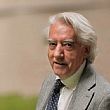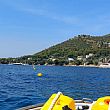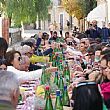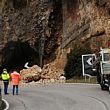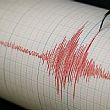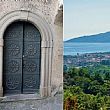LA PALMA (CANARY), ITALIAN AND SPANISH GEOLOGISTS TO BUILD A MORE EFFICIENT AND EFFECTIVE EUROPEAN CIVIL PROTECTION MODEL
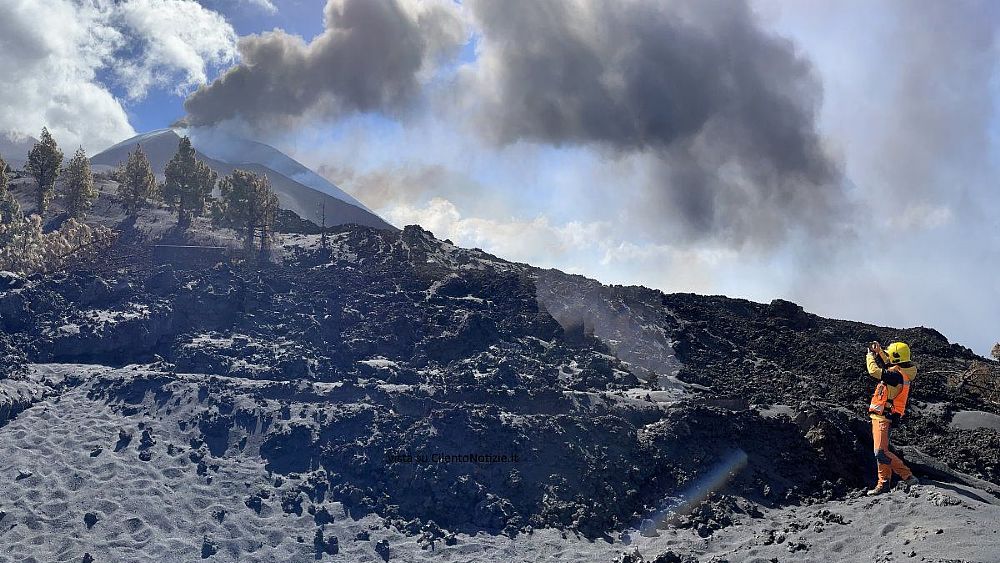
From 5 to 9 November the geologists of the Study Center Foundation of the National Council of Geologists on the island of La Palma, in the Canary Islands, to observe the activity of the Cumbre Vieja volcano, where an eruption has been underway since last September 19 and which, according to scientists, it could go on for a long time yet.
The objectives of the Italian-Spanish mission were to evaluate the consequences of the eruption on the entire anthropic and environmental system, to share methodologies of action, good practices and experiences for the management of geological risks and to propose a plan of common actions to be carried out. in collaboration with the European Federation of Geologists.
The delegation was attended by Lorenzo Benedetto, Domenico Angelone and Carlo Cassaniti, respectively President, Treasurer and Board Member of the Study Center Foundation of the National Council of Geologists, Carlos Carcia Royo vice president of ICOG (Distinguished Official College of Spanish Geologists) as well as president of the 'the NGO “Geologos del Mundo” and the secretary of the same organization Luis Granadino, under the aegis of the European Federation of Geologists (EFG) present with the general secretary Gabriele Ponzoni.
Together with the Spanish civil protection, the places affected by volcanic activity, lava flows, Strombolian activity and lava fountains were visited and joint meetings were held at the advanced command post (PMA): in particular, four sites located along the right flank of the lava flow, starting from the summit area and continuing towards the valley to the end of the lobe of the lava flow located close to the sea.
"During the meeting - declared Lorenzo Benedetto - the Italian experiences on the subject of volcanic risk emerged in connection with the management of the prevention phase, the one underway and finally the planning aimed at reconstruction. On this last issue we have emphasized the need to deepen the knowledge of the other connected risks (seismic, hydro-geological and environmental), in order to reach a cognitive level that can guarantee planning that has the safety of the population and environmental sustainability as a priority. , with the hope of being able to continue this type of experience, also for other types of risks and in the hope of making a small contribution to the construction from below of a European civil protection model that is more participatory and aware and therefore more efficient and effective ".
The working group met the representatives of the various technical-scientific components involved in emergency management at the Mando Avanzado post (Emergency Command Directorate) in El Paso. During the talks, the scenarios of the current volcanic crisis and the damage reported to the anthropic-environmental system were outlined with about 2200 completely destroyed residential and tourist buildings and numerous closed farms, 7000 displaced people and 1,200 hectares covered by lava.
"The illustrious Official College of Geologists ICOG and the NGO Geologos Del Mundo, greatly appreciate the precious help of our Italian colleagues in this situation that requires humanitarian and qualified technical assistance to carry out the reconstruction work, declares Carlos Garcia Royo - their sensitivity and willingness to present the activities, the form and methods of prevention of these events, has shown great experience gained in the daily management of risks in Italy "which is associated with the secretary of Geologos dos Mundo Luis Granadino:" it was an extraordinary experience that of having been able to share these dramatic moments with Italian colleagues, which see on the one hand the great strength of nature and on the other the desperation of those who have lost everything, their home, their work and their serenity ".
The Italian geologists presented the case of Etna and the consequent need for the mapping and study of the subsoil in the management of volcanic risk. In addition, meetings were visited and held with the municipality of Tazacorte, the Gesplan company, in charge of reconstruction for the autonomous community of the Canary Islands, and a very important meeting was held with the presidency of the La Palma Business Federation.
Carlo Cassaniti also talks about the Italian-Spanish mission, underlining how “the international mission in La Palma has certainly enriched the technical-scientific knowledge on volcanic risk and in particular on the impact that such natural events can have on the population and on the territory. Having had the opportunity to participate in emergency management activities (PEVOLCA) represents a starting point for cooperation with the Canary authorities, which have positively assessed the multidisciplinary approach that the Italian delegation presented during the meeting held at the Advanced Command Post (PMA), also highlighting how important it is to have been able to share the experience of the civil protection procedures developed on Etna, a volcanic system very similar to the Cumbra Vieja in eruptive products even if located in a completely different geodynamic context ".
The need for planning risk scenarios was therefore the focus of the technical meetings held with the Spanish civil protection and government authorities, without neglecting the Italian experiences in the field of seismic risk and the limit condition of the emergency: "the interest aroused from our interventions - declared Domenico Angelone - shows on the one hand how international cooperation is necessary both in the event of a disaster and in the prevention phase, on the other hand how the latest Italian seismic crises have forced our country to make a sudden leap forward in terms of seismic microzonation and civil protection plans, it being understood that we still have a lot to learn to reach a satisfactory level of prevention ".
Complacency was also expressed by the secretary of the European Federation Gabriele Ponzoni who highlights how "the mission carried out on the island of Palma at the explicit request of fellow Spanish geologists (professionals and members of the EFG European Federation of Geologists), brings out in a way the need for integration between the various European excellences in the field of prevention, assessment and management of natural disasters and the related risks is very clear. In fact, the confrontation that took place between the Italian-Spanish colleagues made it possible to enhance the Italian experience and related skills, in the face of an increase in the safety of the territory".
All this inevitably converges on a common and integrated approach (obviously future) of a European civil protection that involves in an increasingly operational way also the professional geologists who often have historical experience of that portion of the territory affected by the disaster as well as technical skills to analyzes useful for assessments in the emergency and post-emergency phases. The European Federation EFG is committed to this effort by supporting all the requests coming from the various countries as well as the specific needs that may emerge in the face of the increasingly stringent challenges that modern times impose on us.

